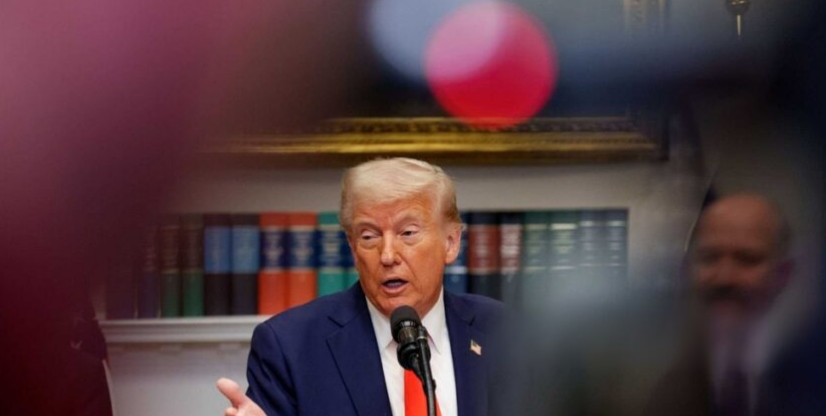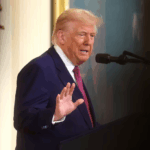The US economy shrank in the first quarter of 2025, posting its first contraction in three years as businesses rushed to import goods ahead of sweeping new tariffs announced by President Donald Trump. Official data released by the Bureau of Economic Analysis (BEA) showed gross domestic product (GDP) fell by 0.3% on an annualised basis between January and March, marking a sharp reversal from 2.4% growth in the final quarter of 2024.
The decline, deeper than the 0.2% fall forecast by analysts, was driven largely by a dramatic 41.3% surge in imports. Firms moved quickly to stockpile foreign goods before tariffs took full effect, inflating the trade deficit and weighing heavily on output—since imports are subtracted in GDP calculations. March’s goods trade deficit reached a new record high.
Wall Street opened lower following the GDP news, but recovered by the end of the day. The Dow Jones rose 0.4%, the S&P 500 gained 0.2%, and the Nasdaq closed nearly flat after earlier losses.
Economists suggested the dip may be short-lived. Paul Ashworth of Capital Economics said the import surge is already beginning to reverse, which “should boost second-quarter GDP.” James Knightley at ING added that businesses had acted pre-emptively to offset potential cost increases.
The downturn coincides with the rollout of Trump’s “liberation day” trade policy, launched on April 2. It includes a blanket 10% tariff on all imports, a 145% rate on Chinese goods, and additional levies targeting specific sectors. While implementation of many tariffs has been delayed by 90 days, core measures remain in force.
President Trump responded to the GDP figures on Truth Social, blaming his predecessor. “This is Biden’s Stock Market, not Trump’s. Tariffs have NOTHING TO DO WITH IT. Our Country will boom… BE PATIENT!!!” he wrote.
Adding to the drag on growth was a decline in federal spending, in part due to government staff cuts overseen by Elon Musk, now leading the Department of Government Efficiency.
The contraction, coupled with a rise in core inflation to 3.5%, has raised concern among analysts. Several major banks—including Goldman Sachs, JP Morgan, and Morgan Stanley—have downgraded their growth forecasts. JP Morgan now sees a 60% chance of a US recession this year.
In contrast, the eurozone economy expanded by 0.4% in the same period, aided by interest rate cuts and a €500 billion investment plan in Germany. However, economists warn that rising US tariffs on European exports could soon weigh on that recovery.
With inflation rising and global trade policy shifting, attention now turns to whether the US downturn is a temporary adjustment—or the beginning of a broader slowdown.










